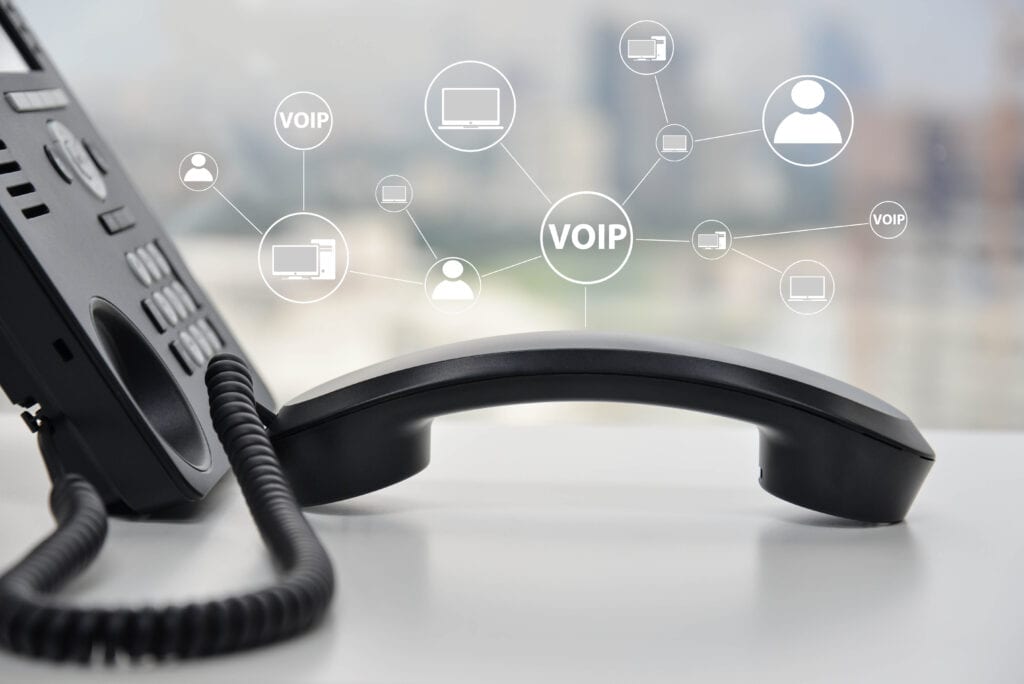So, we’ve been harping on a lot recently about virtual landlines which you may or may not know use a VoIP system to operate.
Since BT announced last year that all traditional landlines are to be scrapped, it really is in everybody’s best interest to get a basic understanding of how a VoIP system works.
In a nutshell, a VoIP system operates by utilising packet switching technology that converts analogue voice signals into digital data.
Excuse us, that was a little too geeky.
So, in layman’s terms, VoIP systems basically convert sound waves (such as your voice) into digital data that is transmitted over the internet.
Back in the days of 56k dial up this concept would be impossible, but now that ultrafast broadband is making its way to the back and beyond of the UK, what was once a ridiculous idea is now making old school landlines appear obsolete.
With the UK’s phone networks getting faster by the day with more 4G and 5G coverage, they are now matching the speeds of what we thought was fast broadband only a few years ago. It’s getting to the point where it would be a genuine achievement to find a place where you can’t get any signal these days.
So don’t worry about the imminent demise of the traditional landline. With internet connectivity beyond what we could ever have dreamed of, VoIP systems will offer clarity and connectivity beyond what you would expect.

So, let’s break it down and move beyond that nutshell. Here’s how a VoIP call works:
When a VoIP device receives digital data from another device, it breaks that data up into packets of information and gives each packet a destination address.
That converted data is then sent to your local router. Once your router has received that data, it will find the shortest path to get it to its destination. The packet can potentially pass through multiple routers to optimise the route.
This is received at the destination. The receiving VoIP device then uses the addresses assigned to each packet to put the packets in the correct order.
And after all that, the person on the other end receives all that data as recognisable speech!
Still with us?
What’s truly amazing is that all those processes are happening in real time, constantly making sure that there are no annoying audio delays.
Did you ever call your backpacking siblings while they were in Thailand back in the days when Skype was the king of video calls? Sometimes you could experience an audio delay which would create constant awkward moments of speaking over each other, creating the uniquely British problem of both parties insisting “no you first”, for all eternity.
VoIP technology is now so optimised and broadband speeds are so reliable and fast that these are no longer issues you will face. Whether you like it or not, VoIP is here to stay, and we really think it’s a good thing.
The change from analogue television to digital may have once seemed daunting to some, but now most would agree, that change in technology has improved our lives.
It’s the same case for VoIP phone calls. They are an unstoppable force that will make our lives easier.
Still stumped? Contact Prestige for more information about VoIP systems and virtual landlines.
If you’d like to learn more, get in touch with one of our friendly team today or give us a call on 01329 595080.





